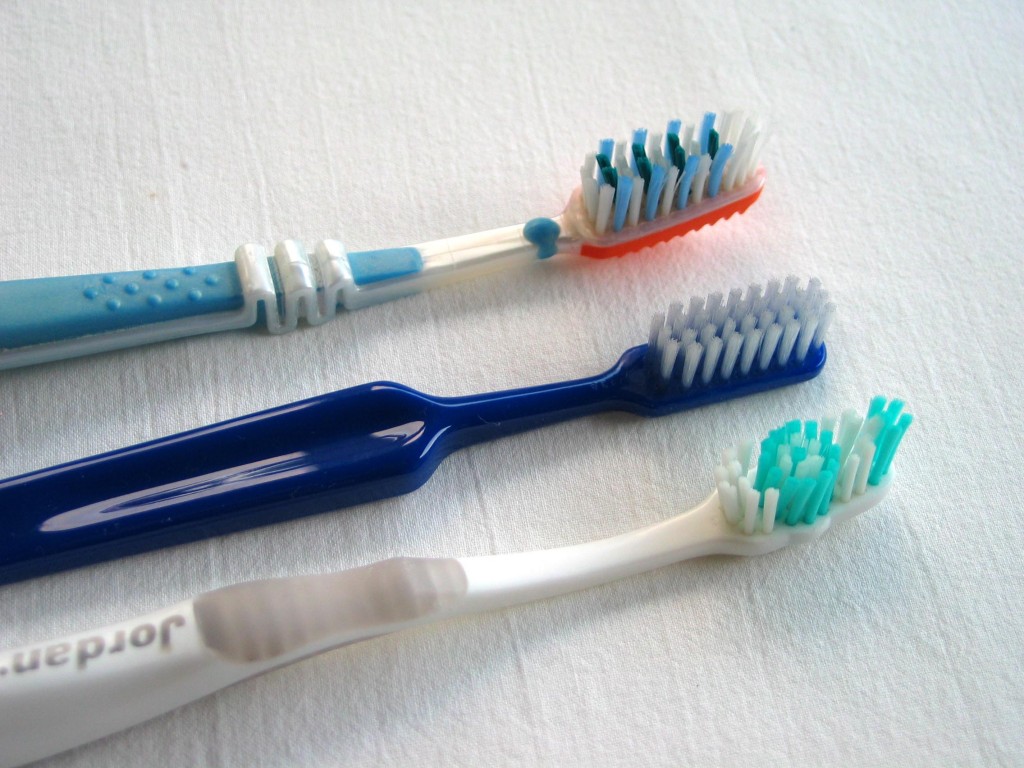Usually Cindy enjoys brushing her teeth and I have no problems with getting her to do so. Whenever there might be some slight resistance, or she’s not in the best of moods at the time, I’ll resort to singing the kid’s song by Tom Chapin:
“You wake up in the morning, it’s a quarter to one
And you want to have a little fun
You brush your teeth, chh, chh, chh, chh … chh, chh, chh, chh, chh
You brush your teeth, chh, chh, chh, chh … chh, chh, chh, chh, chh
You wake up in the morning it’s a quarter to two ……”
Dental hygiene turns out to be the most important for brain health. Apparently our gums are havens for little critters, er, bacteria that eventually make their way to the brain and wreak havoc. Though potentially a cause for cognitive dysfunction, I do not believe this was the case with Cindy. As a former nurse she was conscientious about her overall hygiene, including dental.
Unfortunately, now her dental hygiene has slipped despite her willingness. She brushes her teeth, but with an over emphasis on the molars and not enough on the incisors. Occasionally, I will brush the incisors for her and even use a metal pick to scrape off tartar, but flossing is beyond her capability … and mine as a caregiver. Nor do I think a cleaning at the dentist’s is the answer. I will schedule one for the summer, but I have my doubts as to whether Cindy will really allow such cleaning. I purchased electric toothbrushes for the both of us, quite a decadent thing for backpackers. I can tell they do make a difference, particularly for stimulating and cleaning around the gums, but Cindy reflexively closes her mouth when the electric toothbrush approaches.
With dementia everything affected by the brain is jeopardized; that includes the immune system. Cindy used to be a hardier soul than me in regards to resisting colds. That has changed. A year ago we got hammered with the flu after volunteering at a day care center. I was sick enough, but I half suspected that Cindy was on her last legs. Since we’ve adopted such a healthy diet, along with avoiding situations like day care, colds have mostly avoided us, though Cindy continues to be more susceptible than me.
I’ve read where people with Alzheimer’s avoid and even dread showering. Because I am Cindy’s spouse, this is not a problem. Cindy dreads being cold from taking off her clothes, but I coax her in to take a shower with me under quite hot water and she ends up enjoying the experience. Due to the consequences of her disease, the shower really is the only, um, intimate contact between us; I like to think this contributes to making my job easier for getting her to take future showers. I know our experience does not apply to people who are not significant others, but I hope this at least provides enlightenment for those that are.
Dementia can jeopardize someone’s hygiene through incontinence. My Mom was incontinent for a few years before she passed away, with her incontinence leading to one particularly tragic outcome. This has yet to happen with Cindy, even though she is more advanced than when my Mom first became incontinent. I would like to think we took good care of Mom, certainly we received positive feedback from Mom’s friends and family to that effect, but in looking back I wonder if we were not sensitive enough to her toiletry needs. I encourage Cindy to go at frequent and strategic intervals and we always use wipes. Maybe this is the secret and by doing this most caregivers can avoid the incontinence problem.
This wraps up the Brain Health Checklist series. Future plans for this blog include sharing our story together as it continues, providing a run down of dementia symptoms that should alert you to intervene for your loved ones, and compiling a couple other “Checklists” for things like kindness and community, based on our wonderful journeys together.

